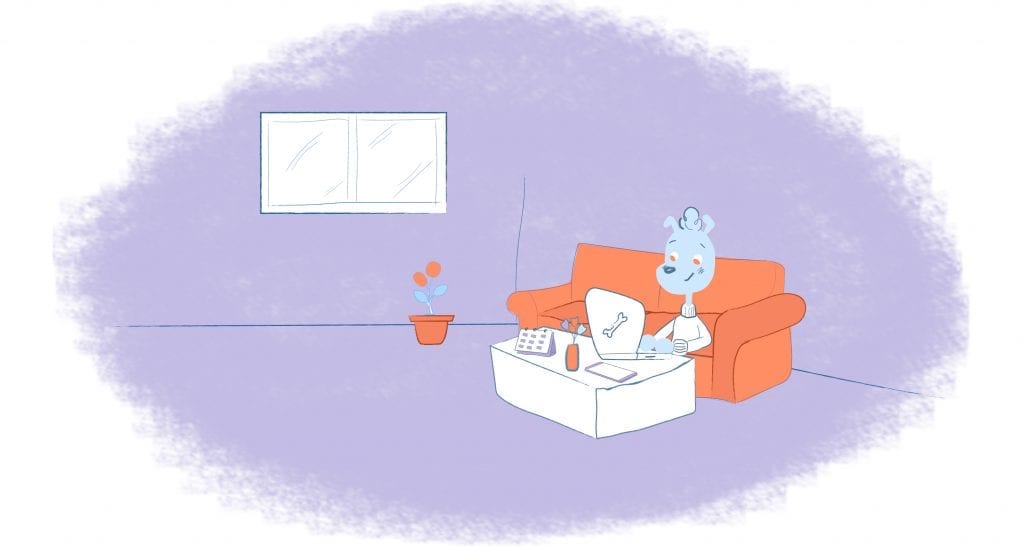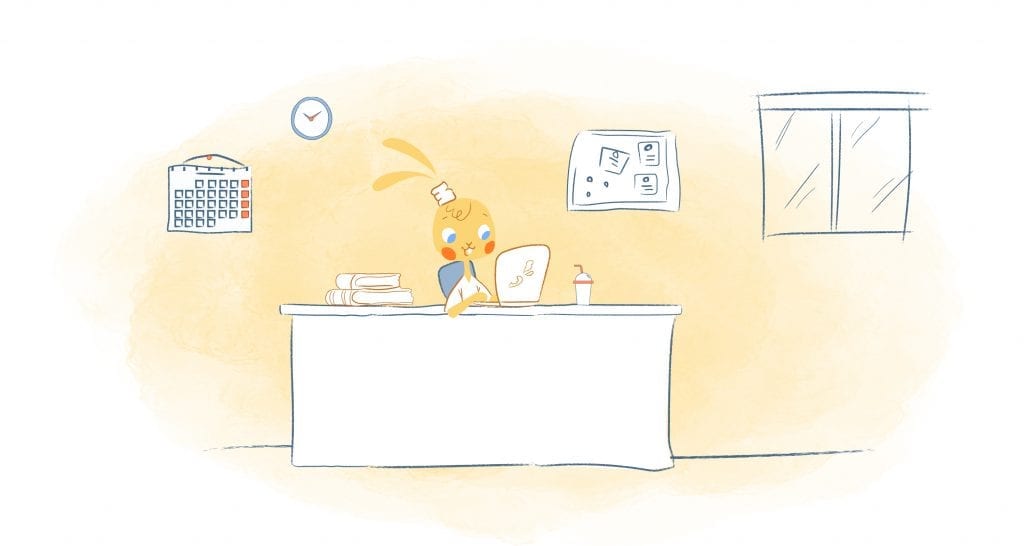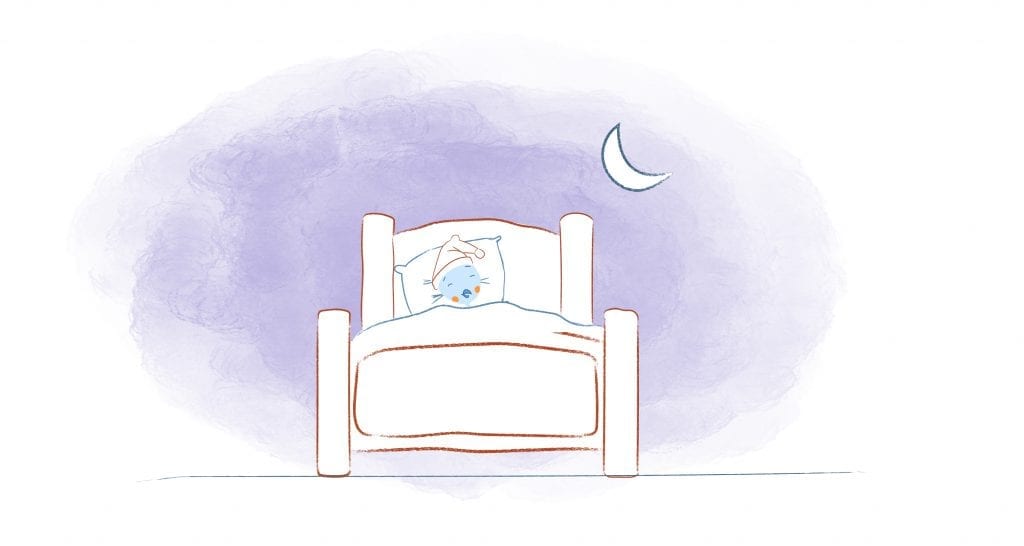

When you visualize someone working from home do you see a certain picture in your mind? I see someone behind a computer in an organized, peaceful, and pristine environment.
A coffee cup sits beside them holding their favorite steaming brew and they smile occasionally while happily tapping away.
But the truth of working from home is far different. The reality is that there are sometimes dishes in the sink, laundry going unwashed, and stuff sitting around.
Just because someone works from home it doesn’t mean their life has suddenly become picture perfect. There are still outside events as well as family time to juggle in between bouts of work.
If you have kids at home because school’s out, staying focused on work can be tough. Fortunately, there are methods to stay productive when the kids are home.
1. Set Goals
Setting goals is one way to stay productive when the kids are home. Having goals pushes you to get more done so you complete all of the tasks on your list.
It may be tempting to stop short of accomplishing everything you need to when the kids are at home. After all, playing video games, going to the pool, and other activities look far more inviting than work.
But you should set both personal and business goals each day and then work to reach those goals. Some days you may not get everything done. Other days you may get more done than is on your list.
By keeping goals where you can see them you’ll have the motivation to keep going. What’s more, it gives you direction so you know what you are working towards.
2. Talk to Your Kids
Of course it can be distracting when the kids are at home. They’ll be noisy at times, fight, and be generally messy, as kids sometimes are. That doesn’t mean you can’t talk to your kids about the importance of your work.
Make sure they understand that if they give you time and space to work, you can get done faster. Once your work is done, perhaps you can spend extra time doing fun things with them. If there’s an important event coming up, they’ll understand you have to work now in order to take off later.
3. Block Family Time on Your Calendar
Let your kids help you block some family time on your calendar. Then stick with those times by working hard before or after them. That way you can get more done and take some time off to spend with them.
If you only have time for one activity but your kids want to do more, let them choose it. This helps them feel more in control and may encourage their cooperation so you can work.
Allow them to watch while you block your calendar so they know when fun activities are coming up. They may look forward to it with anticipation and let you work and stay productive in the meantime.
4. Stick to a Schedule
Getting your work done when the kids are at home isn’t always easy. But if you create and stick to a schedule it will be a little less stressful.
Although it may deviate a little from when the kids aren’t at home, get in a routine that is similar each day. This will make things in your home a bit less chaotic.
Everyone will know what time breakfast is and when to get out the door for work, practices, or whatever.
Add in a few breaks so you can spend a bit of time with your kids. That keeps them from feeling unimportant and lets them know you care.


5. Have a Dedicated Work Space
Having a dedicated work space is something else that will help you stay productive when the kids are home. When you can, work in a room separate from where they are playing, watching movies, etc. The further it is from where they are, the better it is for working.
If the room has a door, close it whenever possible to limit noise and help you concentrate. Do the same with windows if the kids are playing outside.
Of course not everyone has a separate room to work in as an office. When that happens, do your best to keep it separate from where the kids are gathered.
6. Swap Kid Duty with Friends
Try swapping kid duty with friends when your kids get noisy and restless. Allow your children to have a friend or two over for a day. Then, let your kid go to their friend’s house on a different day so you can get more work done.
Obviously you would need to discuss this with the parents of said friend first. That way there are no misunderstandings or hard feelings.
7. Use Signals
Another idea is to use signals to let kids know when they can interrupt your work and when they can’t. For instance, you can make your own door hangers to go on your home office door knob.
Make a green one that says it’s ok to come in. Yellow should say to ask before entering. Red means stop, do not enter. Having that system, or a similar one, could save your sanity and help you get more work accomplished.
8. Invest in Headphones
Noise cancelling headphones are an additional tactic to aid you in getting more done when the kids are at home. Although they are not cheap, you can find a pair on Amazon for under $50.
They may be worth the price if they help you stay productive and focused on your work.
9. Let Your Kids Help
You can also stay productive when the kids are home by letting them help you. Assign chores to each child based on their age and skill level. Then, check in with them later in the day to see if they got their assignments completed like you did.
Not only will you get more work done, you’ll get more household chores completed too. That will give everyone more family time together. You’ll also be teaching your children the value of time.


10. Work When Kids Are Sleeping
Clearly you can’t get all of your work done when your kids are sleeping. After all, you’ll need to get some sleep as well.
But if your kids are late morning sleepers or if they still take naps, you can take advantage of that. Use those quiet times to get extra work done so you can stay productive. Then when they are up and active later, you’ll have a jump start on your day.
11. Pay for Childcare
It may sound weird to pay for childcare when you work from home, but it might be necessary. A lot of that decision depends on the kind of work you do as well as the ages and maturity of your kids.
For instance, older children might do very well without childcare. At ten or eleven they can pretty much entertain themselves and just have you fix meals and check in occasionally.
It’s a whole different story for three or four year olds, though. They will need more monitoring and could be a lot more distracting when you’re working.
Working from home isn’t as glamorous or picture perfect as some people might expect. When you have extra distractions, like kids at home for the summer, it can be even harder. But as you can clearly see, there are ways to stay productive even when the kids are home.











Kayla Sloan
Kayla is a financial productivity expert that wants to help everyone pursue a life of freedom. My goal in life is to help people feel less chained to their jobs. You deserve to find the best. Lets get their together!